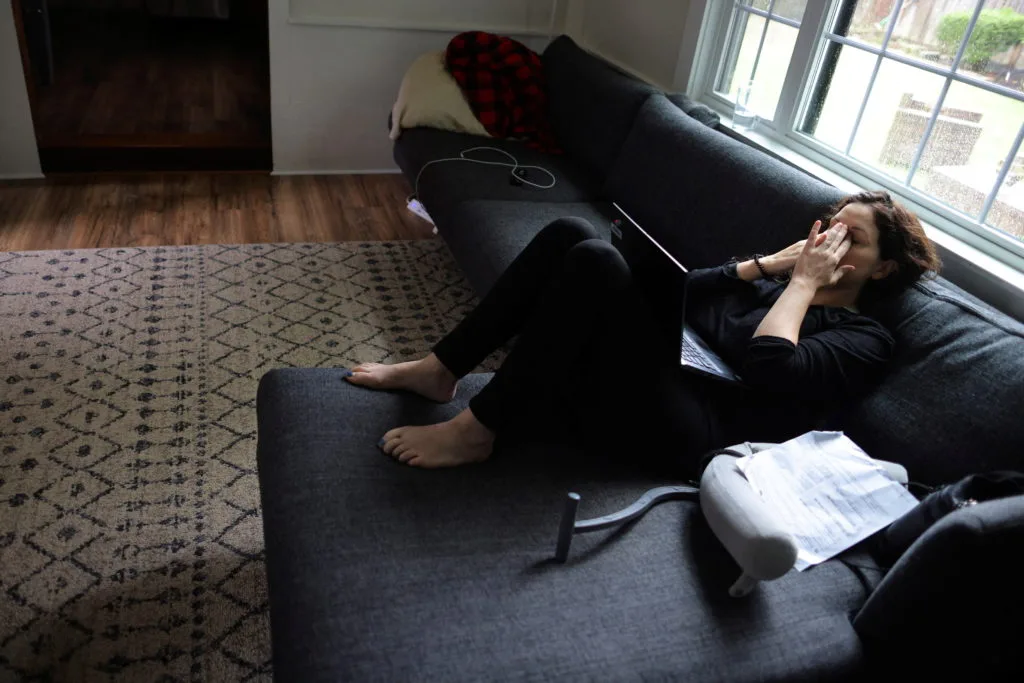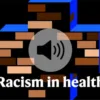
As millions of Americans seek answers about long COVID, a recent advisory from the Substance Abuse and Mental Health Services Administration (SAMHSA) is giving physicians better guidance on how to identify mental health symptoms that may stem from the condition.
These new guidelines, released in June, as part of the Biden’s administrations action plan for long COVID research, provide a framework that can help physicians, patients, and providers to better understand the mental health symptoms — anxiety, fatigue, obsessive compulsive disorder and post traumatic stress disorder (PTSD), among others — associated with long COVID.
“They validate and create categories for these conditions, and then provide some kind of guidance about how to manage them,” said Dr. Serena S. Spudich, a professor of neurology at Yale School of Medicine.
“We are really focused on continuing to prioritize the treatment, the identification and treatment of people who have long COVID, particularly who are dealing with these mental and behavioral health symptoms, because they can be very debilitating and people with long COVID need help now,” said Molly Sanborn, a Public Health Analyst at SAMHSA.
PBS NewsHour digital anchor Nicole Ellis spoke with public health analyst Molly Sanborn and Dr. Serena S. Spudich about long COVID’S impact on mental health. Watch the conversation in the player above.
Dr. Spudich said that the symptoms of long COVID can be characterized as what was traditionally thought of as psychiatric or psychological, and then there are others that are neurological. In most cases, she says, these conditions are overlapping — for instance, depression and brain fog.
READ MORE: What the latest research tells us about long COVID’s most common symptoms
In an October 2021, meta-analysis of COVID-19 survivors, published in the Journal of the American Medical Association (JAMA), about one in three survivors were diagnosed with generalized anxiety disorders and one in five were diagnosed with depression.
Cognitive function — ability to concentrate, brain fog and memory — also suffered. Another study of COVID-19 survivors in the Mount Sinai Health System found at least one cognitive impairment was present for 25 percent of patients eight months after infection.
Cognitive challenges can have profound implications on one’s mental health, Spudich said. Sometimes, “the brain is somehow causing an environment in the brain that’s not letting the brain nerves talk to each other properly and so are causing a sort of slowness or confusion,” Spudich explained. “Another possibility is that there are changes in the blood vessels in the brain or in the body that are changing the way blood flows to also affect brain function,” she added.
In its new guidance, SAMHSA also explicitly urged health care providers, especially primary care physicians, to look for and document symptoms or possible symptoms of long COVID in their patients.
“Managing patients with Long COVID will require a multidisciplinary effort, given the multiple organ systems often involved. Primary care physicians (PCPs) will likely be gatekeepers in this regard,” the SAMHSA guidance said.
That includes providing information in accessible formats, including resources for clinical trials and support groups.
It also warned about the possibility of appointment backlogs, noting that “neuropsychologists, behavioral neurologists, and psychiatrists have been especially in demand.”
“The increased referral volume has already translated to substantially increased wait times for appointments, further prolonging patients’ options for recovery. Healthcare systems should consider integrating such specialists into primary care settings to promote more rapid clarification of diagnosis and treatment options,” the guidance added.
SAMHSA’s guidance highlights how social determinants of health affect long COVID outcomes, worsening disparities in vulnerable populations. Black, Latino, and American Indian/Alaskan Native populations are more susceptible to higher levels of disease transmission because of structural, social, and health inequities experienced over time. These populations are also 1.5 to 1.6 times more likely to experience long COVID than white people. Access to mental health care is also a barrier for some racial and ethnic groups, the guidance notes.
More answers are needed, but experts say a significant first step is addressing that long COVID can affect mental health.
“There’s been a long time that we’ve heard from patients that they’re having symptoms that they don’t really understand and that their providers, or their friends, or their family members also don’t really understand them. And so I think one thing that’s really important is to validate that they’re experiencing this and that hopefully with the greater recognition that these are conditions that need to be tested for and looked for, we’ll have fewer people falling through the cracks,” Spudich said.


